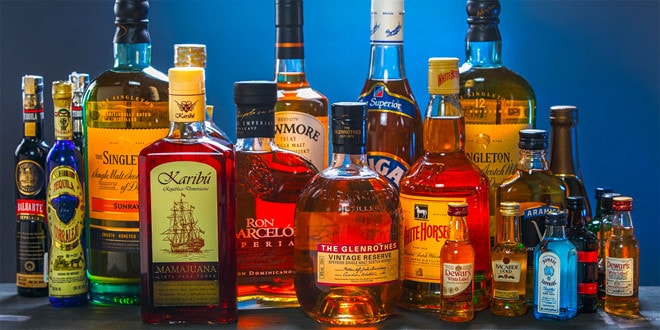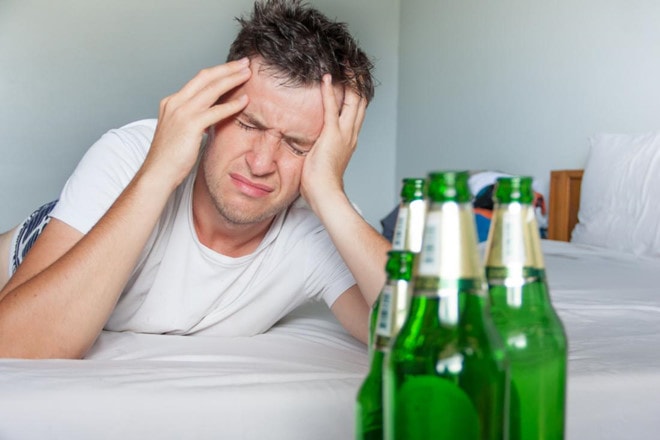Why do you get dizzy after a night of drinking?
Having a few drinks at a party may seem like a fun decision at the time but it will leave you feeling hungover and hungover the next morning.
Headache, dry mouth, stomachache... These are the symptoms we experience if we drink too much alcohol the night before, also known as dizziness and hangover.
According to the National Institute on Alcohol Abuse and Alcoholism, in addition to fatigue and severe headaches, external symptoms of a hangover include sensitivity to sound and light, muscle aches, red eyes, thirst, sweating, dizziness, and irritability.
These side effects usually begin a few hours after we stop drinking as the blood alcohol concentration drops, and these symptoms are most severe when the blood alcohol concentration is zero.
So what causes this dizziness and nausea?
 |
| The mornings after a night of drinking, the body is often tired, achy, dizzy and nauseous. Photo:Paul Bradbury |
Effects of congeners in wine
Byproducts are chemicals produced during the fermentation of alcohol, such as acetone, acetaldehyde, fusogenic oils, and tannins. These substances are found in high concentrations in dark-colored wines such as red wine, bourbon, brandy, whiskey, and dark beer. They are the leading causes of hangovers.
While they help enhance the flavor of wine, scientists say congeners are essentially toxic to the human body, leading to hangovers.
 |
| Dark colored wines often have high levels of congeners. Photo:Television Africa Network |
However, that doesn't mean you should drink a lot of vodka, gin, white wine or light beer, they can still leave you feeling wobbly the next morning if you drink too much.
Scientific explanation of symptoms
Biologically, the main cause of a hangover is dehydration. "Alcohol is a diuretic, which means it helps the body release fluids," says Dr. Brandon Browne of the Department of Emergency Medicine at Scott & White Healthcare in Round Rock, Texas. "When we have a severe hangover, the body is often more dehydrated and cannot eliminate byproducts. These byproducts make the body feel uncomfortable, tired, and dehydrated, causing fatigue, dry mouth, and nausea."
In addition to the problem of dehydration, according to Professor Yul Ejnes, President of the Medical Council of the American College of Physicians, drinking too much alcohol irritates the stomach lining, relaxes the lower esophageal sphincter, causes reflux and at the same time weakens brain cells causing dizziness. In addition, people who drink alcohol also have reduced blood sugar levels, causing hypoglycemia and weakness.
Why don't some people get dizzy?
Some people report that they do not experience the symptoms described above. While this may be due to genetics, it is more likely that they are more discerning in their drinking habits. Each person reacts differently to alcohol based on factors such as body size, how quickly they drink, and how much food and water they consume.
According to Professor Ejnes, the rate at which we metabolize alcohol and its byproducts can alter the severity of our hangovers the next day.
 |
| We can eliminate these dizziness and nausea by adjusting the amount of alcohol we drink appropriately. Photo:Medical News Today |
So how to avoid dizziness and hangover?
The only sure way is to drink alcohol in moderation. However, drinking a glass of water between each drink is a good way to combat dehydration, and it will also make you feel better the next morning. Additionally, getting enough sleep after a night of drinking can also help reduce symptoms of fatigue such as headaches.
Along with that, before drinking alcohol, we can also eat a meal, avoid being hungry. The next morning when you wake up, you should drink a lot of water, eat foods rich in starch and sugar to increase blood sugar.



